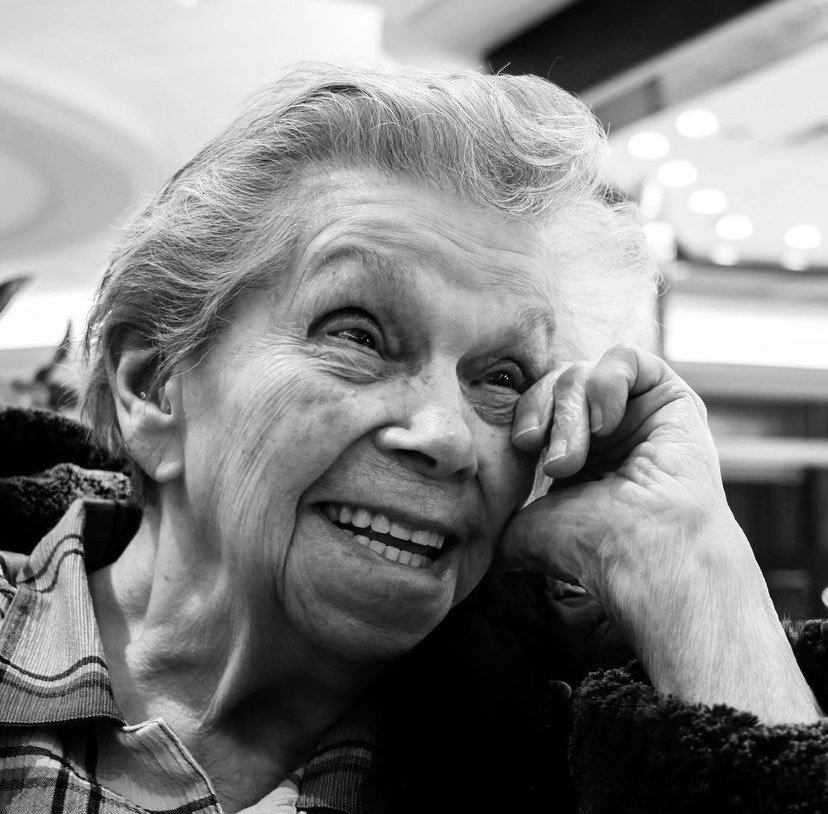A Happy Death
Just about every weekend of my childhood was spent alongside my grandma Sally. We would spend time at the mall, playing cards and watching far too much TV, while getting far too little sleep. She was the ideal grandmother. My grandpa died when I was just about two years old, so my siblings and I were grandmas’ constant companions, and she ours.
Grandmas’ memory started to fade about ten years ago. Although, when asked, I firmly denied this, unable or rather unwilling to see the reality in front of my eyes. About six years ago her memory faded to the point where it seemed necessary to place her in the memory unit of a care facility. One might assume my weekend sleepovers with Grandma would come to an end, but the little cot that lived under her bed provided just enough comfort for a sixteen-year-old girl to get a night’s sleep.
In 2020, at the beginning of the pandemic and two months into the lockdown of her facility, the family received word that grandma was “fading.” My dad and uncle received permission for a window visit in full PPE. They were horrified when grandma was wheeled up to the glass: black sunken eye, sunken cheeks, and a swollen, broken pinky finger. Constant falling and refusing food had weakened her. She was clearly despairing: until the pandemic, she had daily family visits. My dad came home firmly stating that grandma “won’t die in there alone.” At a family meeting, the decision was made to bring her to our home, which was accomplished in less than 48 hours. My mom, myself, and two younger siblings, aged 18 and 15, would provide her “hospice care” until her imminent death.
Over three years later, grandma is nearing her 104 birthday, and my mom, older sister and two younger sisters, along with my dad and his siblings, are a well-oiled team, making sure, she “won’t die alone.” The mornings that my Aunt Elisa cares for grandma, she sits on the edge of grandma’s bed, hugging her with laughter filling the air. On his days, Uncle Bob sits quietly with grandma, playing her favorite music. Always-active Uncle Mickey takes her to the food court or local coffee shop for sweet treats. Uncle Ed, the only one not living in the province, makes frequent visits home to see his mom. My dad, the quiet servant, does her laundry, cleans her room, and feeds her dinner. My mom and three sisters take turns caring for grandma’s everyday needs with a quiet humility.
My older sister Beth remarks, “She doesn’t know who we are, but she knows she’s loved. It’s easy to get caught up in the business of the day and look at her as a duty. But she’s a whole person: she has emotions that need caring for, with her physical needs. And we can give her that care.” My mom has discovered that when she gets her up in the morning, giving her mother-in-law a kiss and some physical affection brings grandma great joy, bringing out her natural appreciative nature. While grandma rarely, if ever, knows where she is, she does know she’s happy and loved. That’s what my family can give her.
You might ask what her “quality of life” looks like, or why we constantly struggle to keep her hydrated and free from bed sores… My aunt muses that taking care of grandma has changed her perspective on what “quality of life” means. Grandma takes immense joy from the smallest things, like watching the bunnies in the yard or watching two flies duke it out, cheering one of them on. The present moment is where joy is. The moments of happiness we provide mean that she has a great day, and those days string into a great week, turning into months and years. She has taught us the joy of the moment.
Grandma Sally

